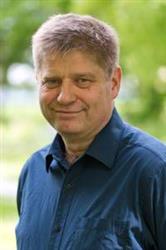ProjektPTSD-Konzept – Der sowjetische Afghanistankrieg und sein traumatisches Erbe. Das PTSD-Konzept in Russsland, in der…
Grunddaten
Akronym:
PTSD-Konzept
Titel:
Der sowjetische Afghanistankrieg und sein traumatisches Erbe. Das PTSD-Konzept in Russsland, in der Ukraine und Litauen
Laufzeit:
01.10.2024 bis 30.04.2027
Abstract / Kurz- beschreibung:
The project examines how the concept of post-traumatic stress disorder (PTSD) which had been developed in the USA for veterans of the Vietnam War was transferred to Soviet veterans of Afghanistan and replaced the previously applied diagnoses and therapies of so-called social adaptation. The focus is on Russia, Ukraine and Lithuania. Prominent protagonists and institutions who, with their studies and networks, significantly promoted the application of PTSD in medical practice play the leading role.
With its constructivist approach and its focus on experiences, the project wants to clarify how closely the medical debate was linked to political and social discussions. This raises the question of how the medical-psychological terms developed for PTSD came to be popularized and how they were used by those affected for their own communication of suffering.
The project is designed to capture the interplay between knowledge, discourses and practices. To this end, the medical debate will be carefully examined on the basis of the relevant journals, dissertations, manuals and studies, in order to then address the broad public reception of PTSD.
The project will fill a gap in the history of PTSD and address several relevant research questions:
1. Social analysis: Beyond its significance as a medical therapy, did the concept of PTSD not also have the function of helping a new conception of the human being and the world to gain more acceptance on the way to a post-industrial society?
2. History of the profession of medicine: Can the history of PTSD be used to paint a balanced picture of the medical-psychological professions and institutions in late and post-Soviet times?
3. War experience: How did Afghanistan veterans integrate PTSD into their self-concept? Did the "victim identity" affect their male self-perception and self-presentation? What were the consequences of the re-evaluation of the war in Afghanistan and the increased socio-political activities of the veterans' associations?
4. Transfer history: Can the project, with its focus on PTSD, set its own accents in the history of scientific interconnections?
5. Contemporary history: How has PTSD been applied beyond Afghanistan veterans to other war-related patient groups? Have the post-Soviet wars given new meaning to the issue of PTSD? How has the concept and treatment of PTSD changed in times of Russia's war of aggression against Ukraine?
With its constructivist approach and its focus on experiences, the project wants to clarify how closely the medical debate was linked to political and social discussions. This raises the question of how the medical-psychological terms developed for PTSD came to be popularized and how they were used by those affected for their own communication of suffering.
The project is designed to capture the interplay between knowledge, discourses and practices. To this end, the medical debate will be carefully examined on the basis of the relevant journals, dissertations, manuals and studies, in order to then address the broad public reception of PTSD.
The project will fill a gap in the history of PTSD and address several relevant research questions:
1. Social analysis: Beyond its significance as a medical therapy, did the concept of PTSD not also have the function of helping a new conception of the human being and the world to gain more acceptance on the way to a post-industrial society?
2. History of the profession of medicine: Can the history of PTSD be used to paint a balanced picture of the medical-psychological professions and institutions in late and post-Soviet times?
3. War experience: How did Afghanistan veterans integrate PTSD into their self-concept? Did the "victim identity" affect their male self-perception and self-presentation? What were the consequences of the re-evaluation of the war in Afghanistan and the increased socio-political activities of the veterans' associations?
4. Transfer history: Can the project, with its focus on PTSD, set its own accents in the history of scientific interconnections?
5. Contemporary history: How has PTSD been applied beyond Afghanistan veterans to other war-related patient groups? Have the post-Soviet wars given new meaning to the issue of PTSD? How has the concept and treatment of PTSD changed in times of Russia's war of aggression against Ukraine?
Beteiligte Mitarbeiter/innen
Leiter/innen
Institut für Osteuropäische Geschichte und Landeskunde
Fachbereich Geschichtswissenschaft, Philosophische Fakultät
Fachbereich Geschichtswissenschaft, Philosophische Fakultät
SFB 923 - Bedrohte Ordnungen
Sonderforschungsbereiche und Transregios
Sonderforschungsbereiche und Transregios
Ansprechpartner/innen
Institut für Osteuropäische Geschichte und Landeskunde
Fachbereich Geschichtswissenschaft, Philosophische Fakultät
Fachbereich Geschichtswissenschaft, Philosophische Fakultät
Lokale Einrichtungen
Fachbereich Geschichtswissenschaft
Philosophische Fakultät
Universität Tübingen
Universität Tübingen
Geldgeber
Bonn, Nordrhein-Westfalen, Deutschland


